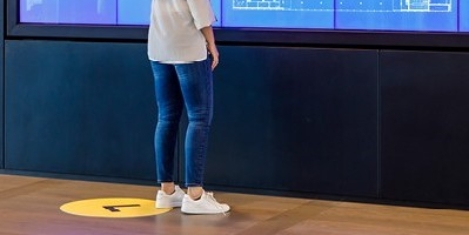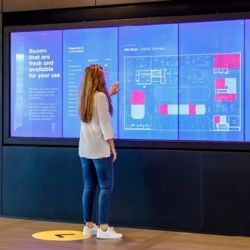To provide the best experiences, we use technologies like cookies to store and/or access device information. Consenting to these technologies will allow us to process data such as browsing behaviour or unique IDs on this site. Not consenting or withdrawing consent, may adversely affect certain features and functions.
The technical storage or access is strictly necessary for the legitimate purpose of enabling the use of a specific service explicitly requested by the subscriber or user, or for the sole purpose of carrying out the transmission of a communication over an electronic communications network.
The technical storage or access is necessary for the legitimate purpose of storing preferences that are not requested by the subscriber or user.
The technical storage or access that is used exclusively for statistical purposes.
The technical storage or access that is used exclusively for anonymous statistical purposes. Without a subpoena, voluntary compliance on the part of your Internet Service Provider, or additional records from a third party, information stored or retrieved for this purpose alone cannot usually be used to identify you.
The technical storage or access is required to create user profiles to send advertising, or to track the user on a website or across several websites for similar marketing purposes.
 80 percent of us want to get back to the office, according to a new report from Dale Office Interiors, but only if they become more than just “places to work”. The research, which surveyed the opinions of UK employees and HR professionals, suggests a disconnect between what we believe offices should do, and the performance of our actual real-world offices – a problem HR heads feel is all the more stark now that we face a return to the office in a post-COVID world. (more…)
80 percent of us want to get back to the office, according to a new report from Dale Office Interiors, but only if they become more than just “places to work”. The research, which surveyed the opinions of UK employees and HR professionals, suggests a disconnect between what we believe offices should do, and the performance of our actual real-world offices – a problem HR heads feel is all the more stark now that we face a return to the office in a post-COVID world. (more…)







 Envoy has released results from its
Envoy has released results from its 








 Businesses in the UK are disproportionately made up of logical and rational thinkers, over intuitive and expressive ones, claims a new study. The study from
Businesses in the UK are disproportionately made up of logical and rational thinkers, over intuitive and expressive ones, claims a new study. The study from 
















October 14, 2020
Many people are demoralised, disconnected and worried. We need to talk about that.
by Steven Buck • Comment, Wellbeing, Working lives